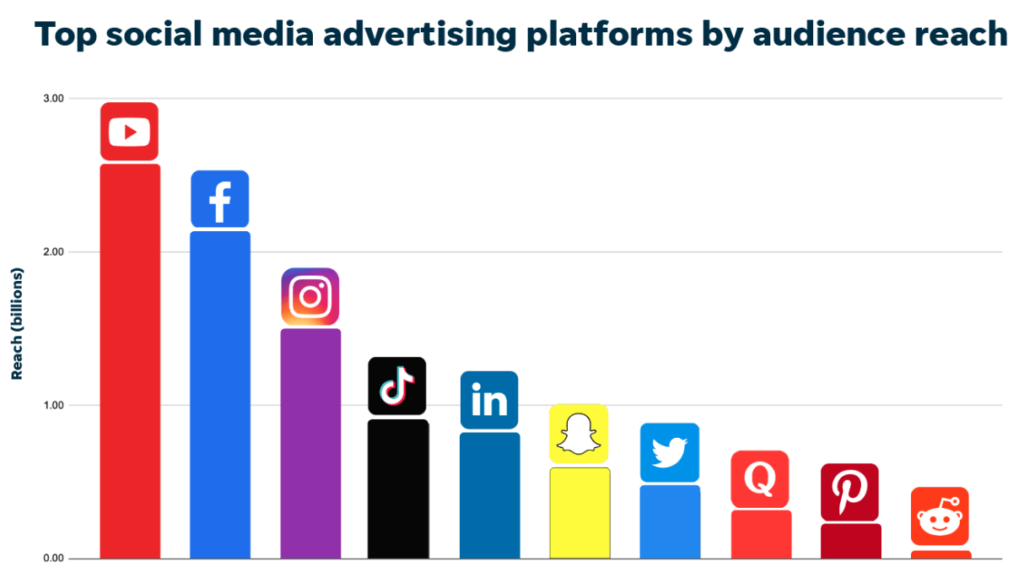How to Start a Podcast in Canada
So, you’ve got a brilliant idea for a podcast that you know will take Canada by storm, eh? We’re here to help you parse through the process of making that dream a reality.
Grab your Tim Hortons coffee (double-double, of course) and let’s chat about the wonderful world of podcasting in Canada. This comprehensive guide will cover everything from branding and equipment to creating engaging content and promoting your masterpiece.
You don’t need to be as funny as Jim Carrey or as insightful as Margaret Atwood; just bring your unique voice and passion to the table. So sit back, relax, and prepare as we make discuss making your pod a reality.

 Planning Your Podcast
Planning Your Podcast
When planning your podcast, there’s much to consider before jumping in headfirst! One of the most critical aspects is selecting a theme (or niche) with longevity. You’ll want to choose something you’re passionate about and can consistently create content around.
Identifying your target audience and establishing clear goals for your podcast is crucial. Are you hoping to educate, entertain or inspire? Knowing you’re why will help guide the creative process and ensure that you maintain focus throughout each episode.
As we continue our journey into podcast planning, let’s chat about format selection. Numerous formats are available, such as interviews, scripted non-fiction, news-based shows, educational series or even scripted fiction. Consider what type of content best suits your theme and skills while keeping your intended audience in mind – after all, they’re the ones who will be tuning in!

This is a chart about the main topics within the most used podcasts currently. Of course, there are many more to discover and further exploit the capacity. The limit is up to you.
Additionally, consider whether you’d like to have a co-host or prefer to go solo. Co-hosting can provide lively banter and diverse perspectives but requires finding someone reliable who shares your passion for the subject matter.
| Co-Host (Pros) | Solo (Pros) |
|---|---|
| Dynamic Conversation: Having a co-host can lead to more lively and engaging conversations, as there are multiple voices and perspectives. | Full Control: Hosting a podcast solo gives you full control over the content, style, and timing. |
| Diverse Opinions: Multiple hosts can bring a wider range of viewpoints to the discussion, enriching the content. | Flexibility: Hosting solo allows for more flexibility in scheduling as you only have to accommodate your own availability. |
| Shared Responsibilities: Tasks like researching, scripting, and editing can be shared between co-hosts, reducing the workload for each. | Consistent Voice: A solo host can maintain a consistent voice and tone throughout the podcast. |
Now that we’ve covered themes, audiences, goals and formats – phew! – it’s time for some fun (and potentially tricky) decisions: co-host considerations. If you opt for having a co-host on board, be prepared for potential scheduling conflicts or differing opinions on the content direction. However, don’t let this deter you; when managed well, these challenges can lead to unique insights and engaging conversations between hosts, ultimately benefiting listeners!
So, grab yourself a cuppa (or perhaps something more substantial), consider these factors during the planning stages, and prepare to kickstart a fantastic podcast adventure in Canada!
Developing Podcast Brand
So, you’ve got your brilliant idea and fancy equipment; let’s create a brand that’ll put those podhacks to shame. Developing a solid podcast brand is essential for standing out among the thousands of podcasts in Canada and beyond. It’s not just about looking pretty; your brand should be memorable, relevant to your target audience, and consistent across all platforms.
Cover art design: Your cover art is often the first thing potential listeners see when browsing podcast directories. Make sure it catches their eye by using bold colours, clean typography, and an easily recognizable logo or image representing your theme.
Unique naming strategies: Choose a name for your podcast that stands out from the crowd and communicates what it’s about. Consider incorporating puns or wordplay if it suits your style!
Target audience insights: Understand who you’re trying to reach with your podcast and tailor every aspect of your branding accordingly – from language choice to colour schemes.
Brand consistency tips: Keep fonts, colours, logos, and tone consistent across episode titles, descriptions, cover art design elements and even on social media profiles to create a cohesive visual identity.
Podcast logo creation: Design a unique logo for your podcast that translates well across various platforms (like social media) and can be used as a favicon on website tabs.
With all these elements in mind, remember that it’s crucial to maintain a sense of humour while developing your brand; after all, we’re here for some fun too! Injecting subtle wit throughout each aspect will keep things engaging for current listeners and newbies alike.
We really think you should take a look at this article published by thinkwithgoogle.com which will give you a clear idea of the importance of personal branding !
Selecting Equipment
Now that you’ve sorted your brand let’s focus on picking the right gear to make your podcast sound like that Bose experience we all dream of. Microphone selection is crucial when starting a podcast because it can significantly impact the quality of your audio. In addition to microphones, it’s essential to consider audio interfaces and soundproofing tips to ensure optimal recording conditions. Investing in upgrades over time will pay off as you grow and improve your podcasting skills.
| Budget-Friendly Gear | Mid-Range Gear | High-End Gear |
|---|---|---|
| USB Mic: Blue Snowball | Dynamic Mic: Shure SM58 | Condenser Mic: Neumann TLM 103 |
| Interface: Behringer UMC22 | Interface: Focusrite Scarlett 2i2 | Interface: Universal Audio Apollo Twin |
| Foam Panels for Soundproofing | Acoustic Treatment Kit | Professional Studio Soundproofing |
| Editing Software: Audacity | Editing Software: Reaper | Editing Software: Adobe Audition |
| Headphones: Audio-Technica ATH-M20x | Headphones: Sennheiser HD280 Pro | Headphones: Beyerdynamic DT 770 Pro |
When choosing equipment for your podcast, it’s essential to balance budget-friendly options with long-term investments that will help enhance the quality of your show. To start, consider purchasing a decent USB microphone like the Blue Snowball or upgrading later on to a dynamic mic such as the Shure SM58 or even a high-end condenser mic like the Neumann TLM 103. For audio interfaces, the Behringer UMC22 or Focusrite Scarlett 2i2 are both solid choices depending on your budget constraints. As for soundproofing tips, you can begin with affordable foam panels but eventually invest in professional studio soundproofing if needed.
You can check the following Think Media video in which all this is exemplified in an easy to understand way!
So, as you embark on your podcasting journey, remember that choosing the right equipment for your needs and budget is essential. Don’t be afraid to start with more affordable gear and gradually invest in upgrades as you progress. Keep these recommendations in mind when setting up your podcast studio, and soon enough, you’ll be creating high-quality content that engages and entertains listeners across Canada and beyond!
Creating High-Quality Content
Now that you’ve got your equipment sorted, let’s dive into crafting top-quality content to captivate your audience and keep them coming back for more! Your ideas need to be presented engagingly while providing valuable information.
Focus on voice modulation so you don’t sound monotonous, and adopt an engaging storytelling approach that keeps listeners hooked. Pay attention to guest interactions during interviews or discussions – make them feel welcomed, maintain a conversational tone, and ask thought-provoking questions. Don’t forget the importance of including listener feedback; it doesn’t only help improve your podcast but also makes your audience feel valued.
To evoke an emotional response from your listeners, consider incorporating these elements:
- Personal anecdotes or stories: sharing relatable experiences can make listeners feel connected with you.
- Humorous incidents: a touch of humour can lighten the mood and add entertainment value.
- Emotional triggers: discussing topics that spark emotions like happiness, anger, or nostalgia can create a deeper connection with the audience.
- Inspirational moments: share success stories or life-changing events that inspire and motivate others.
Content consistency is critical when building a loyal following. Stick to a regular publishing schedule so your listeners know what to expect – no one likes waiting for their favourite podcast! Also, ensure consistency in audio quality by maintaining proper microphone placement and using noise reduction techniques where necessary.
Moreover, revisiting similar themes or topics across episodes as it helps build expertise over time.
So there you have it! To create captivating podcast content in Canada (or anywhere else), focus on voice modulation, engaging storytelling, meaningful guest interactions, valuing listener feedback, and maintaining content consistency throughout. Remember that adding personal touches through anecdotes and tapping into emotions will make for memorable listening experiences that’ll keep audiences coming back for more! Happy podcasting!
Launching and Promotion
It’s time to launch and promote your fantastic new podcast, ensuring it reaches the ears of eager listeners far and wide! As Canadian podcasters, we know our unique approach and perspective can make a difference in podcasts.
To kick things off on the right foot, let’s discuss some effective launch strategies to help your show stand out.
Firstly, plan a strategic launch date to give yourself ample time for promotion leading to the big day. Share teasers or snippets from upcoming episodes across social media platforms, and reach out to relevant influencers or fellow podcasters interested in sharing your content with their audiences.

This interesting graph from Wordstream.com shows the impact of advertising on different social media. Source:Statista
This is also an excellent opportunity for you to engage with potential fans by hosting live chats or Q&A sessions about your upcoming show – remember, people love being part of something new and exciting!
Now that you’ve built anticipation around your podcast launch, it’s essential not to lose momentum post launch. In our opinion, you need to continue promoting on social media by sharing episode highlights, guest quotes, or thought-provoking questions related to each episode’s theme.
The ultimate goal is to encourage listeners to rate and review your show on Apple Podcasts or Spotify, significantly impacting visibility within their directory. Lastly, don’t forget networking – attend local events or meetups to connect directly with potential fans while learning more about what other Canadian podcasters are up to in this ever-growing industry!
Monetizing and Benefits

So, you’re ready to make money from your podcast and reap the benefits of your hard work, eh? Let’s dive into how you can monetize your podcast in Canada and enjoy those sweet loonies rolling in.
There are several ways to generate income through your podcast: sponsorships, advertisements, donations or crowdfunding, selling products or services related to your content, and even hosting live events.
As a Canadian podcaster, consider focusing on Canadian sponsors. Partnering with local businesses whose target audience aligns with yours is a great way to support each other while making some cash. This could include anything from small independent shops to major brands looking for authentic voices.
Local advertisements are also a great option. Reach out to companies within your area for ad placements on your show – this boosts their visibility and helps you create niche profits while integrating ads seamlessly into the content.
Community support is another avenue to explore. Engage with listeners who believe in what you do and would be willing to donate through platforms like Patreon for example. Encourage them by offering exclusive content or perks in return.
Geographic targeting is crucial when trying to monetize your podcast in Canada. By emphasizing local connections and catering specifically to the Canadian market, you’ll be able to build stronger relationships with both listeners and advertisers alike.
Additionally, remember that networking is vital – attend industry events (either virtually or in-person) to meet potential collaborators or sponsors.
As we wrap up our discussion on starting a podcast in Canada – from planning through launching and promoting it – don’t forget about the long-term benefits of this venture! It will allow you access to new audiences and income streams and help position yourself as an authority figure within your chosen niche.
So grab that mic (and maybe a double-double), hit record on those sweet maple syrup-soaked conversations, and share them with the world. Happy podcasting, fellow Canadians!
Frequently Asked Questions
What are some strategies for overcoming the fear of public speaking or nervousness when recording a podcast?
Ever felt those pesky jitters as you hit the record button for your podcast? You’re not alone!
Overcoming nervousness and building confidence is essential for successful podcasting. One way to do this is through vocal exercises – warming your voice can help reduce tension and boost your confidence.
Mindful preparation, like creating a detailed outline or script, can alleviate anxiety by ensuring you know exactly what you want to say. Authentic storytelling is vital; speak from the heart and let your passion shine through.
And don’t forget a little humour never hurts anyone – adding some light-hearted moments can make you and your audience feel more at ease.
So go ahead, take a deep breath, embrace these strategies, and watch those fears of public speaking fade away as you become the confident podcast host you were always meant to be!
How can I efficiently network with other podcasters in Canada to collaborate and expand my audience?
In our quest to conquer Canadian networking and boost our podcast collaborations for audience growth, we’ve discovered a few cheeky tips that’ll have you associating with fellow podcasters faster than you can say ‘maple syrup.’
First, sniff out some connection events like meetups or conferences where the podcasting community gathers (eh?), then break the ice by sharing your collaboration ideas in a friendly way.
Don’t shy away from social media either; joining Canadian podcaster groups online is an excellent avenue to share tips, tricks, and potential partnerships.
So slap on those snowshoes, grab a Tim Hortons coffee, and let’s venture into the world of podcast networking together!
What legal considerations should I be aware of when creating a podcast in Canada, such as copyright issues and obtaining permission to use someone else’s content?
Imagine you’ve just released a fantastic podcast episode, and suddenly, an angry musician’s knocking at your virtual door, accusing you of using their music without permission. Yikes!
To avoid such sticky situations in Canada, we need to know that copyright education is essential for understanding the dos and dont’s of content usage. Permission acquisition should be our top priority when using someone else’s work. We can rely on fair dealing provisions for educational or news reporting purposes, but we must tread carefully.
Instead of risking it all for that catchy tune, why not explore royalty-free music libraries or Creative Commons-licensed tracks? This way, we keep our podcast and conscience squeaky clean while leaving those pesky legal issues in the dust!
How can I assess the success of my podcast and monitor its progress over time, including listenership and engagement metrics?
To measure the success of our podcast and track its growth over time, we’ll need to keep an eye on some key metrics. These include listener demographics, engagement levels, and even our monetization strategies.
While having top-notch audio equipment is essential for a great listening experience, focusing on community building and effective podcast promotion is crucial. We can fine-tune our content creation process by analyzing stats such as downloads, audience retention rates, social media interactions, and reviews or ratings on various platforms. We can ensure we hit the right notes with our listeners (pun intended!).
So, let’s dive into those numbers and make our podcast the talk of the town (or at least among our target audience)!
Are there any particular grants, funding opportunities, or resources available for Canadian podcasters to assist in supporting their projects?
As budding Canadian podcasters, we seek Canadian grants, funding resources, and support to kickstart our audio adventures.
Fear not, fellow Canucks; numerous organizations offer funding opportunities to help you invest in top-notch podcasting platforms and equipment recommendations.
While specific grant programs may vary over time, resources like the Canada Council for the Arts and provincial art councils often provide financial assistance for creative projects – including our beloved podcasts.
As we dive into this exciting world of storytelling and connection, let’s also remember to explore various monetization strategies to sustain our passion projects.
So, grab your beaver tails and poutine (or any other stereotypical snack) because together, we’ll navigate through the Great White North’s offerings to make our podcasts stand out like moose in a snowstorm!
Conclusion
We’ve done it, folks! We’ve conquered the tremendous Canadian podcasting frontier, leaving no stone unturned in our quest to create the most phenomenal podcast Canada’s ever seen.
Our voices shall echo across the land, captivating listeners and inspiring a new generation of podcasters. So what’re we waiting for? Let’s grab our microphones, fire up those mixing boards, and let loose the dulcet tones of our unique Canadian perspectives.
The world’s ready to hear from us – let’s give them a show they’ll never forget!

